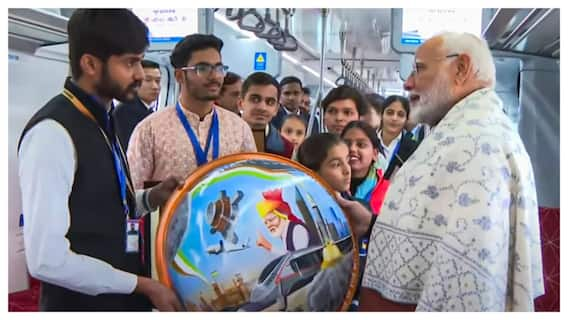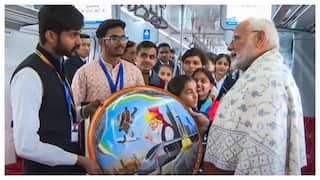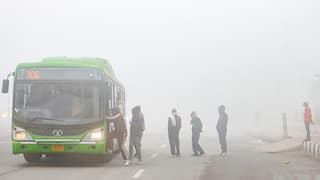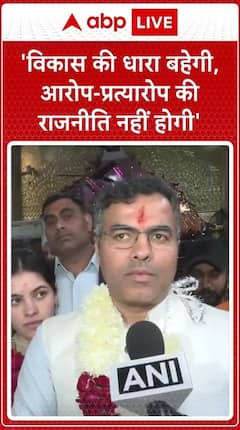RBI grants payment extension to select MSMEs

Mumbai (Maharashtra) [India], Feb 7 (ANI): In a bid to relieve Micro, Small and Medium Enterprises (MSMEs) of payment-related woes, the Reserve Bank of India (RBI) on Wednesday announced that select companies would be provided additional time to repay loans.
Post the announcement of the sixth bi-monthly monetary policy statement, the RBI's six-member Monetary Policy Committee (MPC) said Goods and Services Tax (GST)-registered MSMEs with aggregate standard exposure of up to Rs. 25 crore with amounts overdue as on September 2017 would be allowed 180 days more to make repayments.
"The formalisation of business through registration under the GST adversely impacted cash flows of the smaller entities during the transition phase with consequent difficulties in meeting their repayment obligations to banks and non-banking financial companies (NBFCs). As a measure to support their transition to a formalised business environment, it has been decided that for the GST-registered MSMEs which were standard as on August 31, 2017 and for which the aggregate exposure of banks and NBFCs does not exceed Rs.250 million as on January 31, 2018, the amounts overdue as on September 1, 2017 and payments due between September 1, 2017 and January 31, 2018, be allowed by banks and NBFCs to be paid not later than 180 days from their original due date, without a downgrade in asset classification," RBI Deputy Governor NS Vishwanathan said here at a press conference.
Presently, banks and NBFCs in India classify a loan account as Non-Performing Asset (NPA) based on 90 and 120-day delinquency norms, respectively.
To this, the RBI noted that formalisation of business through registration under GST had adversely impacted the cash flows of the smaller entities during the transition phase with consequent difficulties in meeting their repayment obligations to banks and NBFCs.
As a measure of support to these entities in their transition to a formalised business environment, the MPC said the exposure of banks and NBFCs to a borrower classified as MSMEs under the Micro, Small and Medium Enterprises Development (MSMED) Act, 2006, shall continue to be classified as a standard asset in the books of banks and NBFCs.
Apart from this, the MPC laid out a series of reforms implemented, as below:
The sub-target of 8 percent of Adjusted Net Bank Credit (ANBC) or Credit Equivalent Amount of Off-Balance Sheet Exposure (CEOBE), whichever is higher, will be made applicable for lending to the small and marginal farmers for foreign banks with 20 branches and above from FY 2018-19. Further, the sub-target for bank lending to the Micro Enterprises in the country of 7.50 percent of ANBC or CEOBE, whichever is higher, will also be made applicable for foreign banks with 20 branches and above from FY 2018-19.
The RBI introduced the Marginal Cost of Funds based Lending Rates (MCLR) system with effect from April 1, 2016 on account of the limitations of the Base Rate regime. With the introduction of the MCLR system, it was expected that the existing Base Rate linked credit exposures shall also migrate to MCLR system. It is observed, however, that a large proportion of bank loans continue to be linked to the Base Rate despite the Reserve Bank highlighting this concern in earlier monetary policy statements.
Since MCLR is more sensitive to policy rate signals, it has been decided to harmonise the methodology of determining benchmark rates by linking the Base Rate to the MCLR with effect from April 1, 2018, for which necessary instructions will be issued by the end of next week.
Furthermore, with a view to providing customers of NBFCs with a cost-free and expeditious grievance redress mechanism, the RBI decided to introduce an Ombudsman Scheme for NBFCs, which will cover all deposit taking NBFCs and those with customer interface having asset-size of Rs 1 billion and above. The scheme will be operationalised by the end of this month for all deposit taking NBFCs, the RBI said.
The RBI had constituted two high level inter-agency committees to review the entire gamut of currency management, including security of movement of treasure. In consultation with the government, the RBI had also arranged an audit by an external group, of four currency presses, two of which are run by the RBI's subsidiary and two by a unit of government, so as to standardise the note printing processes, procurement of raw materials, quality assurance processes, and security. A Task Force, the RBI said, is being formed to implement the recommendations of the above committees within nine months.
Additionally, with a view to promote a less cash economy, incentive schemes for installation of various machines have been reviewed and it has been decided to discontinue going forward the incentives for installation of Cash Recycler Machines (CRMs) and Automated Teller Machines (ATMs). (ANI)
This story has not been edited. It has been published as provided by ANI
Trending News
Top Headlines








































